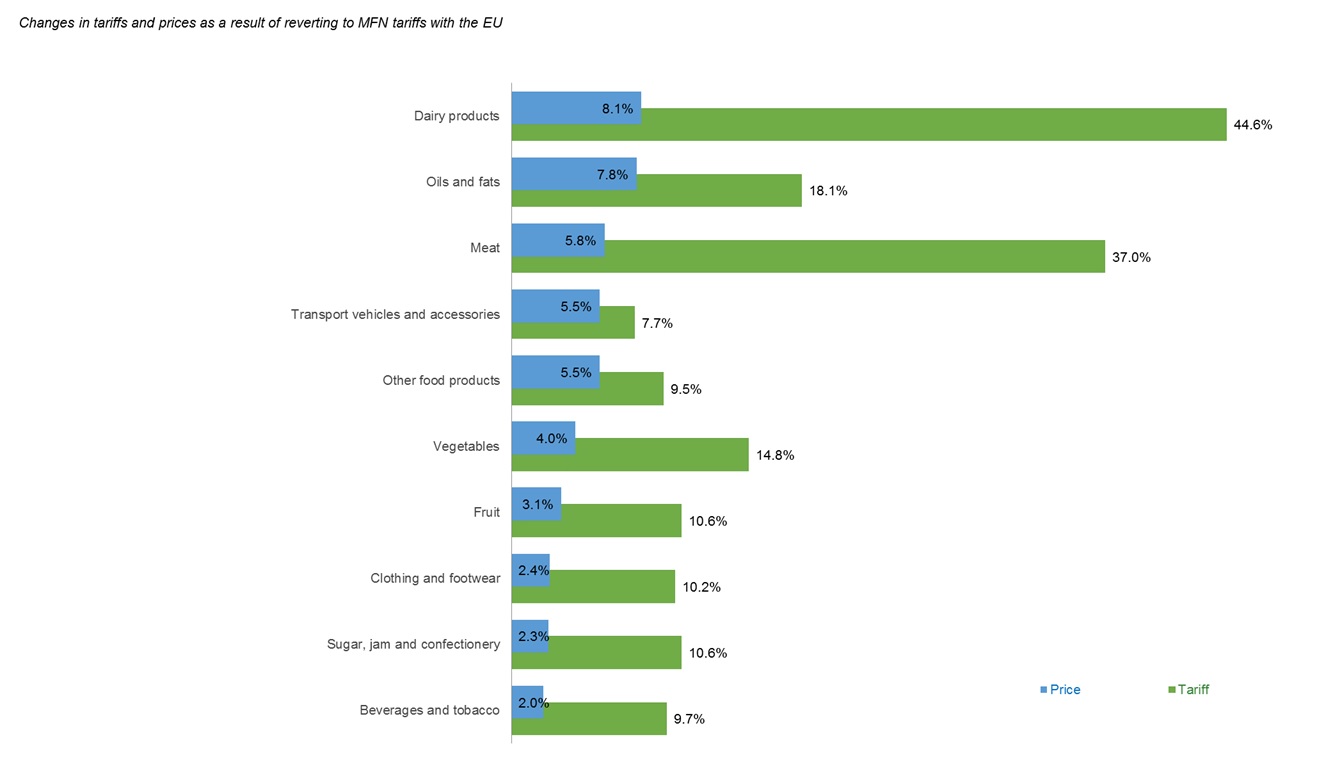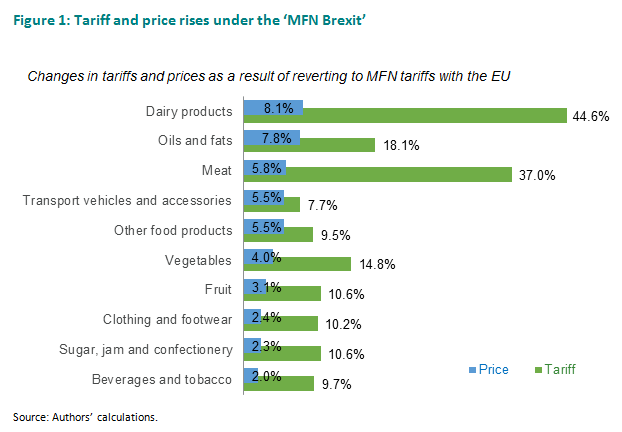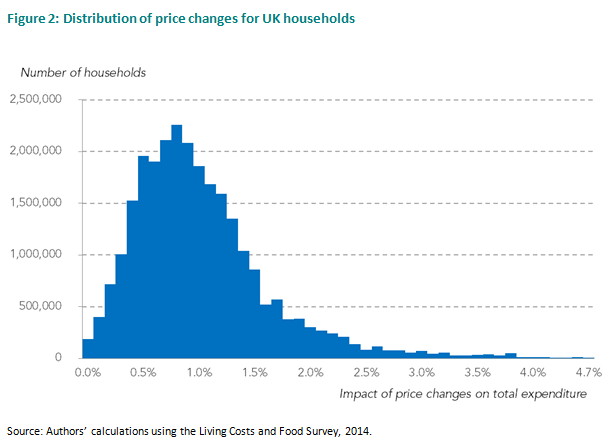Will Brexit Raise the Cost of Living?
As the United Kingdom is preparing to leave the European Union, Government policy is to seek a deep and comprehensive free trade agreement with the EU. But Brexit talks have not moved onto the trade issues yet and even if the future trade relationship is taken up in December, this gives little time and offers no guarantee that an agreement will be reached and ratified before 29 March 2019, the Brexit date. The Government has recently recognised the possibility that talks might break down and started to outline a ‘no deal’ vision of the UK-EU trade.

As the United Kingdom is preparing to leave the European Union, Government policy is to seek a deep and comprehensive free trade agreement with the EU. But Brexit talks have not moved onto the trade issues yet and even if the future trade relationship is taken up in December, this gives little time and offers no guarantee that an agreement will be reached and ratified before 29 March 2019, the Brexit date. The Government has recently recognised the possibility that talks might break down and started to outline a ‘no deal’ vision of the UK-EU trade.
Our analysis reveals that unemployed households, those with children, and pensioners will all fare off worse than average in the case of a ‘no deal’. A new paper, Will Brexit Raise the Cost of Living?, by Stephen Clarke, Ilona Serwicka and L. Alan Winters, and published by the National Institute Economic Review, looks at the impact that imposing Most Favoured Nation (MFN) tariffs on UK imports from the EU would have on the price of goods sold in the UK and the average cost of living.
Leaving the EU with ‘no deal’ would mean that the UK and the EU would be obliged – under World Trade Organisation (WTO) rules – to impose the same tariffs on their mutual trade as they impose on imports from the third countries (those not covered by preferential trade agreements).
The government’s intention is to adopt the MFN tariffs currently imposed by the EU, and if these were imposed it would cost more to get many goods onto our supermarket shelfs – because a lot of what we buy in the UK comes from imports and a lot of these imports come from the EU. In our analysis we analyse how Brexit will affect the prices of goods (but not services) that compose around 40 per cent of what the average family consumes. A typical shopping basket of these goods worth £100 would now cost another £2.70 just to cover the cost of tariffs, even after consumers have substituted non-EU goods for EU ones to a plausible extent.
The average increase in spending will vary from household to household, however, depending on what these households tend to consume. For example, households headed by someone who is unemployed spend an average 15.7 per cent of their total weekly expenditure on food, whereas households headed by someone in full-time work spend an average of just 9.8 per cent. And as food prices will go up by more than those of manufactured goods this means that unemployed households will face larger increases than those headed by someone in full-time work.
The research shows that across different categories of goods there is a significant variation in how much tariffs and prices will increase if the UK and the EU start to trade on MFN terms.
In case of ‘no deal’, tariffs on dairy products from the EU will go up by 45 per cent and meat from the EU will be subject to an average tariff of 37 per cent. Subject to the largest tariff rises, prices of dairy products are expected to increase more than other products (8.1 per cent). Manufactured and non-food items will face smaller price rises – cost of transport vehicles will go up by 5.5 per cent on average, clothing and footwear up by 2.4 per cent.
These price rises will have a significant effect on living standards. The research estimates that an annual spending for the average family in the UK could rise by around £260 per year – an average increase in the cost of living of slightly over 1 per cent. But for some 2 million – or 8 per cent – of UK households, Brexit could push the average cost of living by 2 per cent or more. Within this group there will be some very rich households – but also some households that already struggle to make ends meet.
Overall, a ‘no deal’ outcome would most negatively affect unemployed households, those with children, and pensioners – while households headed by someone in full-time employment or by a single person with no children will be proportionally less affected. This suggests that there is a risk that economic inequality – a factor that may have contributed to a Brexit vote – may be exacerbated further by the UK’s withdrawal from the EU.
None of the post-Brexit trading arrangements – other than maintaining the status quo (which the UK Government rules out) – could deliver frictionless trade arrangements to a greater degree than those currently in place between the UK and the EU. But in order to minimise the negative effect of Brexit on households up and down the country, the UK needs to ask for an extension of the Article 50 negotiations and a transition period that preserves the status quo for as long as it takes to negotiate a new deep and comprehensive trade agreement with the EU.
















